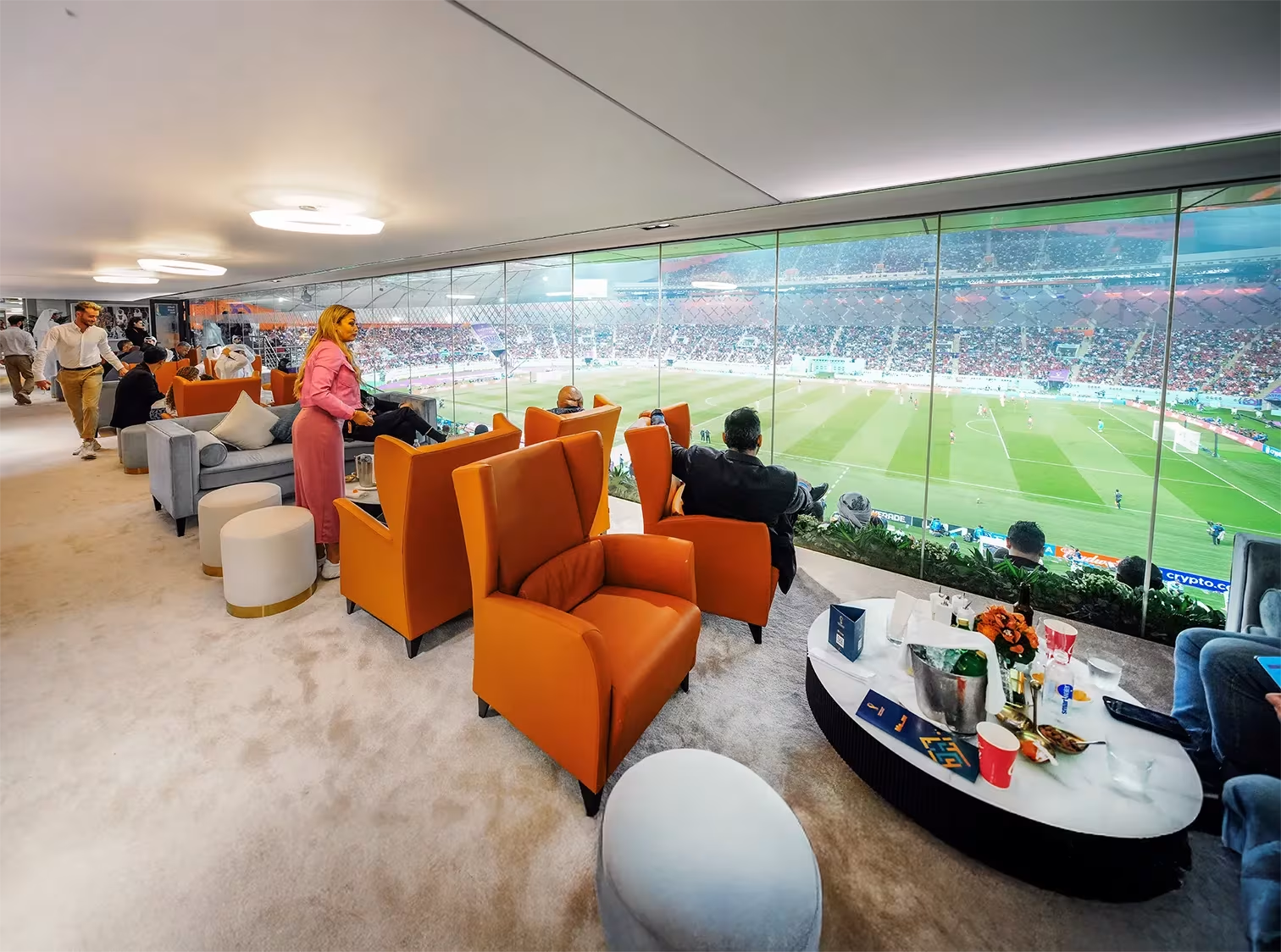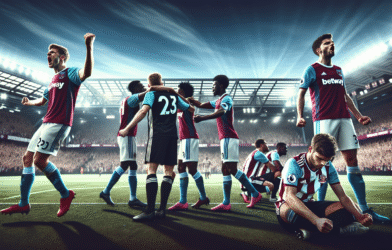Subtotal $0.00
On Location as Official Hospitality Provider
On Location, the Official Hospitality Provider for FIFA World Cup 26, has offered a tangible glimpse into how FIFA World Cup hospitality will unfold in North America next summer. Atlanta’s Piedmont Park preview demonstrates the scale, sophistication, and fan-focused approach that will define premium experiences across host cities. While the full program remains under wraps, the showcase signals a strategic push to position hospitality as a central pillar of the tournament’s commercial framework. For context, FIFA and On Location are aligning to deliver world-class FIFA World Cup hospitality that supports fan engagement and regional economies.
Official Hospitality Framework and Partnerships
As the 2026 edition approaches, On Location is curating a hospitality framework designed to scale across cities. The Atlanta preview highlights partnerships with FIFA and regional partners to deliver premium access, curated activations, and hospitality lounges that extend beyond matchdays. The experience emphasizes curated access, hospitality staff, and exclusive events that align with the tournament’s commercial goals. This framework reinforces hospitality as a core revenue driver for FIFA World Cup hospitality. FIFA has long positioned hospitality at the center of the global event, and Atlanta’s preview aims to reinforce that strategy.
- Premium access to select venues
- Curated tastings and cultural activations
- Behind-the-scenes events and player interactions
- Concierge-style service and premium transport options
Consumer Experience and Premium Access
Premium ticket holders will enjoy more than seats. The Treatment signals immersive services, with lounges, exclusive screenings, and hospitality hosts guiding every step of the journey. Food and beverage programs will be crafted to reflect local flavors while maintaining global standards. Importantly, FIFA World Cup hospitality will emphasize safety, comfort, and accessibility, ensuring fans can focus on the on-field drama while appreciating the broader city and football experience. For fans curious about the broader ecosystem, visit Atlanta Tourism for city-wide context.
The Treatment: Immersive Experience
The Treatment represents a bold evolution in FIFA World Cup hospitality, blending immersive design with practical service to create a multi-sensory game-day journey. In Atlanta, preview attendees experienced a taste of what premium-ticket holders will receive during World Cup matches in 2026. The concept centers on exclusivity, curated programming, and storytelling that connect the match to the host city’s culture and identity.
What the Immersive Experience Includes
From the arrival rituals to post-match reflections, The Treatment promises a seamless flow of hospitality moments. Guests gain access to thoughtfully designed lounges, private dining experiences, and premium beverage programs. Interactive venues, artist collaborations, and culinary showcases translate football into a living experience. The experience emphasizes service quality, safety, and accessibility so fans can focus on the competition. On Location Experiences is coordinating these elements to scale across upcoming World Cup venues.
- Exclusive lounges with prime sightlines
- Chef-driven menus and international cuisines
- Intimate player interactions and media experiences
- Dedicated hospitality hosts and seamless logistics
Narrative and Service Curation
The narrative layer of The Treatment fuses sport with storytelling, highlighting local culture, music, and cuisine. Service curation focuses on anticipatory hospitality—staff anticipating needs, guiding guests through complex schedules, and delivering personalized touches. This approach is designed to elevate FIFA World Cup hospitality by creating a sense of place, comfort, and prestige that resonate with global sponsors and fans alike.
Piedmont Park Preview Event
The Piedmont Park preview offered a rare opportunity to see hospitality planning in action within Atlanta’s urban landscape. The event demonstrated how premium experiences can extend beyond stadium walls to kinetic spaces that celebrate the city’s character while maintaining FIFA standards. Attendees encountered hospitality zones that blended food, music, and interactive moments, underscoring how host-city venues can amplify fan engagement through thoughtful design and logistics. The site also showcased how outdoor venues can serve as scalable components of the FIFA World Cup hospitality ecosystem.
Event Highlights and Attendance
Key highlights included curated tastings, sponsor activations, and guided tours that revealed the logistics of a large-scale hospitality program. Attendees reported streamlined check-ins, comfortable seating, and attentive service that felt exclusive yet welcoming. The preview also functioned as a live rehearsal for transport and crowd management, with coordinators mapping pedestrian flows to minimize friction while maximizing enjoyment. This sample affirmed that FIFA World Cup hospitality in 2026 will be anchored by hospitality-rich environments, even outside the arena.
City Collaboration and Local Flavor
Atlanta embraced a collaborative approach that married global standards with local flavor. Partnerships with parks authorities, local businesses, and cultural institutions shaped a program that highlighted music, cuisine, and arts from the region. The Piedmont Park showcase illustrated how host-city identity can shine through premium experiences, turning a hospitality preview into a tourism accelerator that benefits hotels, restaurants, and attractions. The collaboration model offers a blueprint for other cities within FIFA World Cup hospitality.
Implications for FIFA World Cup 26 Hospitality
From a strategic standpoint, the Piedmont Park preview carries significant implications for FIFA World Cup hospitality in 2026. The rollout signals how host cities will coordinate with FIFA and partners to deliver consistent, premium experiences while scaling to manage millions of fans. Hospitality programs are essential to the tournament’s commercial framework, driving sponsorship value, hospitality revenue, and fan engagement across North America. Keeping fans engaged off the pitch will be as critical as the matches themselves, and the Atlanta showcase demonstrates how premium experiences can become a lasting part of the World Cup footprint.
Strategic Value for Host Cities
Host cities will be measured by their ability to integrate football with culture, commerce, and daily life. The preview demonstrates a model where local venues, transit systems, and hospitality networks operate in harmony with FIFA’s standards. Such alignment helps cities attract sponsors, tourism, and business development, extending the World Cup footprint beyond games. For FIFA World Cup hospitality, coherence in programming across sites is a key determinant of success.
Commercial Framework and Sponsor Synergy
Hospitality programs offer premium sponsors a platform to engage fans with brand experiences, hospitality, and exclusive access. The Atlanta preview shows how partner activation can be scaled, from bespoke dining to on-site entertainment. This synergy strengthens the tournament’s financial foundation while offering fans memorable moments that extend the value of the ticket. In the broader context, FIFA World Cup hospitality is increasingly about curated experiences that connect sponsors, fans, and communities in meaningful ways.
Atlanta as a World Cup Hospitality Showcase
Atlanta’s role as a World Cup hospitality showcase underscores the city’s potential to host a landmark event in 2026. The preview demonstrates how the city can leverage tourism, conventions, and global media attention that accompany the FIFA World Cup hospitality ecosystem. The city’s hospitality infrastructure—venues, transit access, and cultural attractions—will be scrutinized as part of a larger strategy to maximize economic impact and international engagement. The work underway here mirrors the global push to set new benchmarks in premium football experiences.
Economic and Tourism Impact
The hospitality preview highlights attendant economic activity—hotels, dining, and entertainment that benefit from sustained visitor interest. Premium hospitality programs provide a platform for local businesses to showcase capabilities and for national brands to reach diverse audiences. The long-term payoff includes stronger tourism infrastructure, more global exposure, and a boost to Atlanta’s profile as a world-class sports city.
Legacy and Global Perception
By presenting a sophisticated hospitality offering, Atlanta can influence how future World Cups are perceived. Traditional football capitals have shown that premium experiences shape legacy and long-term interest. For FIFA World Cup hospitality, the Atlanta showcase demonstrates how a host city can blend football, culture, and commerce into a coherent, globally appealing narrative.
















